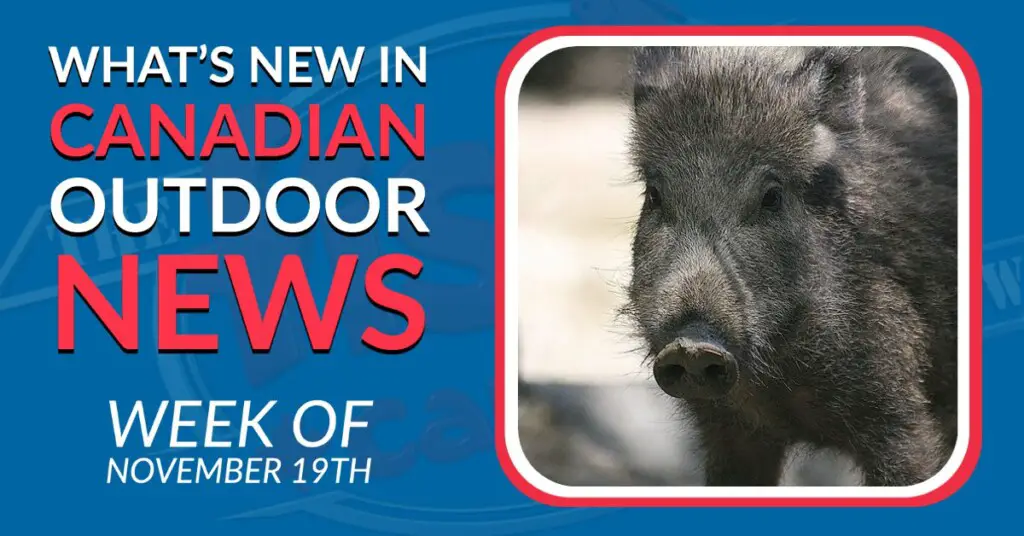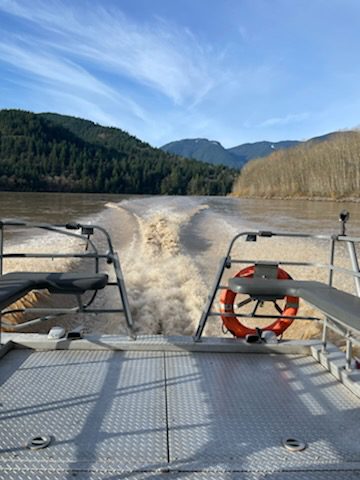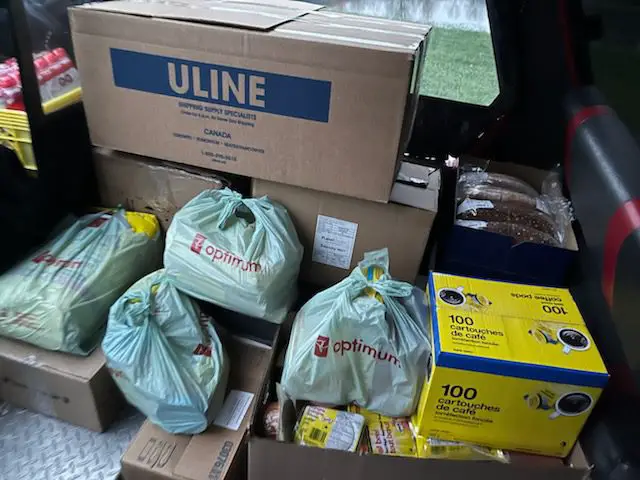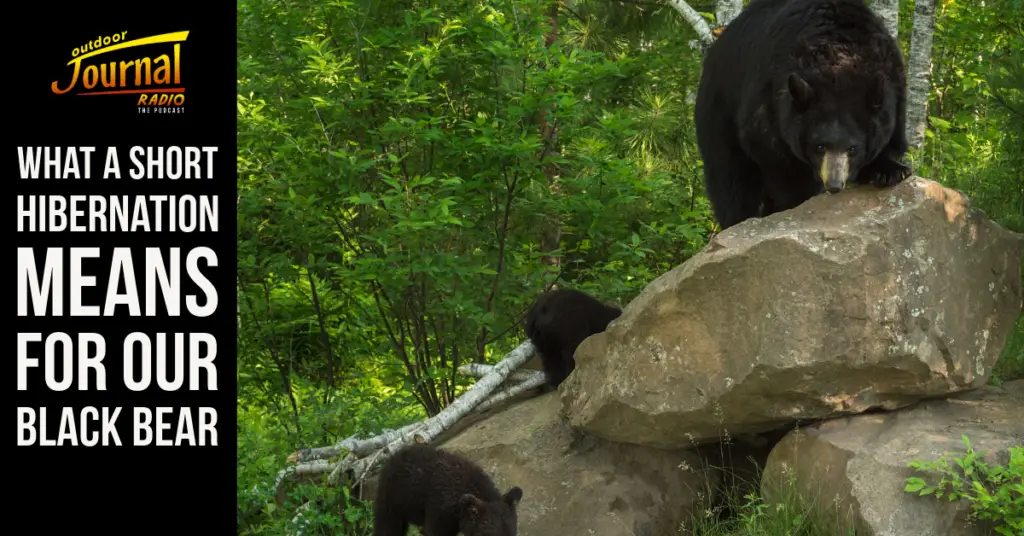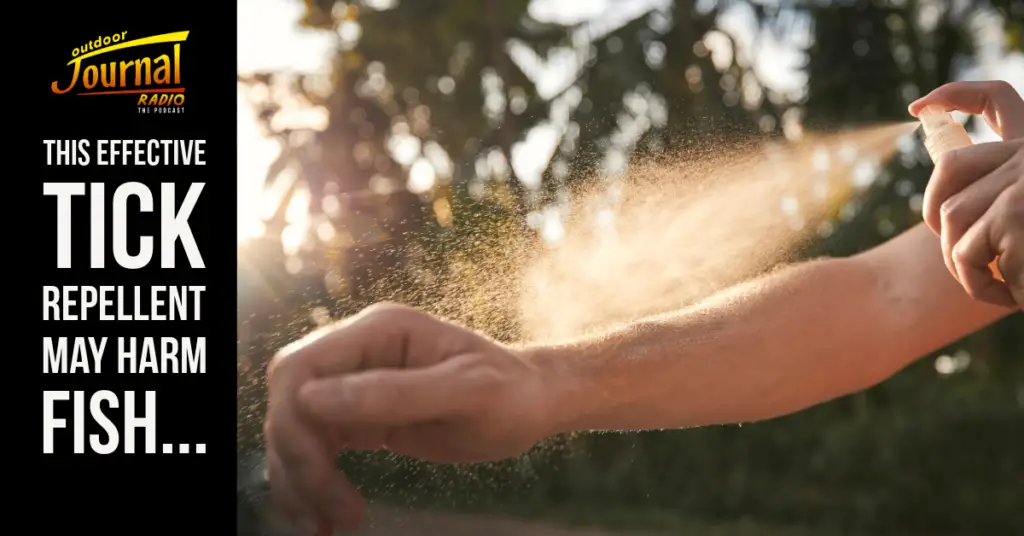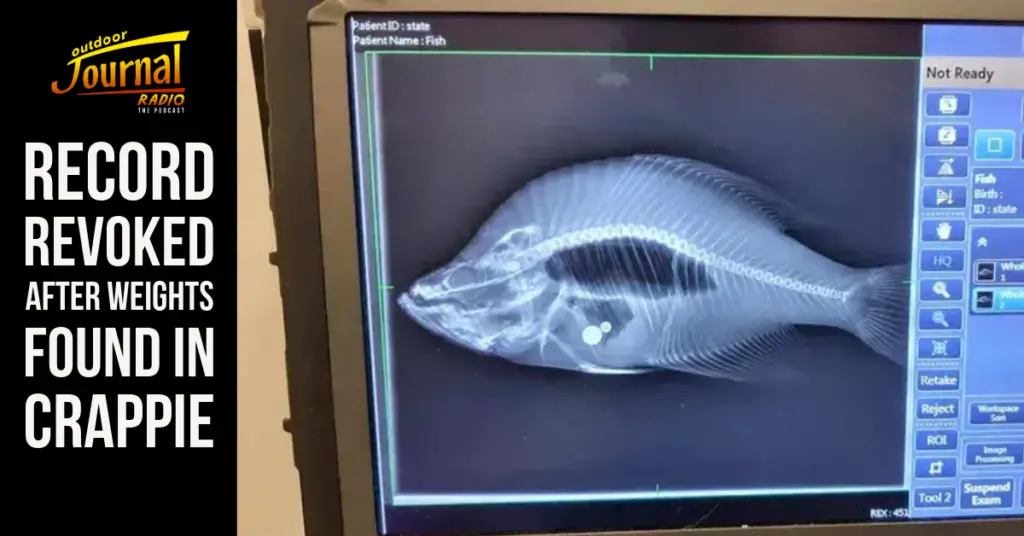The Stories that Matter and the Fuel to your Bar Banter – Canadian Hunting and Fishing News from the Week of November 19th, 2021
Although news has never been so abundant, finding relevant and reliable stories has never been more difficult. Thankfully, Fish’n Canada has you covered. From historic floods to wild pigs, here is everything you missed this week in the world of Canadian fishing and hunting!
1 – Western Fishing Guides Band Together to Help with BC Floods
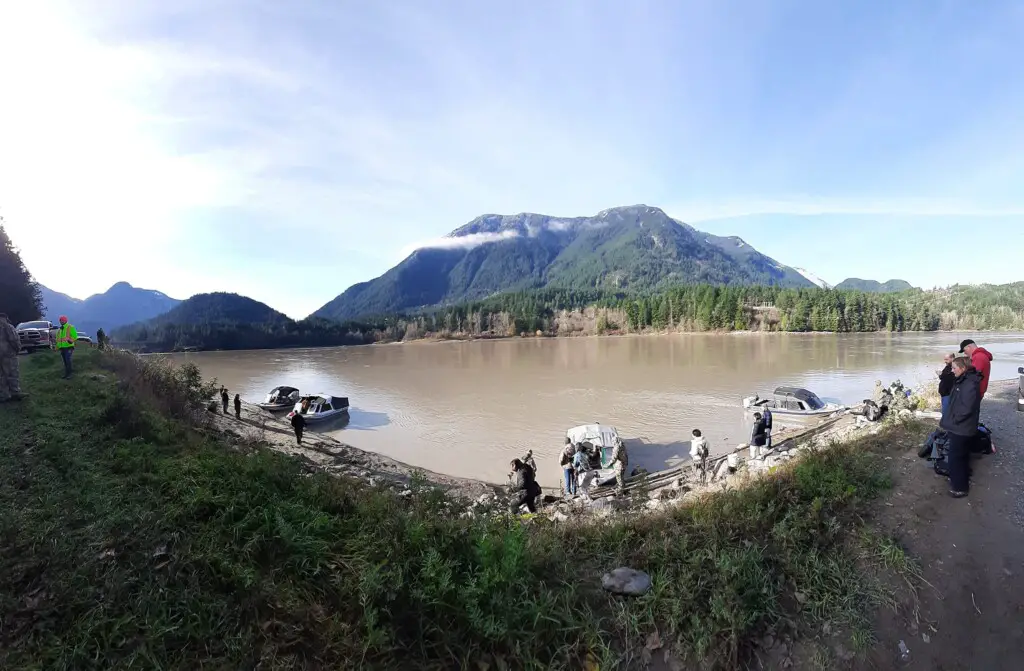
In the wake of the historic flooding being experienced in the Fraser River Valley, fishing guides from all over the province have begun banding together to help the cause.
Our own Angelo Viola talked to one of the guides organizing these expeditions earlier this week. Vic Carro, of STS Guiding in BC, told Angelo that he, as well as countless other operators with jetboats, are running search and rescue missions up and down the Fraser Valley. This effort is helping support public agencies such as firefighters, police, and other local emergency services, from Merrit to Vancouver, picking up the countless stranded folks – many of which are running out of potable water, food, and natural gas and propane for heat.
Much more than just a need of groceries, rescuers and volunteers are becoming overwhelmed and need our help. Vic has set up a GoFundMe that has begun taking donations that will go towards helping those impacted by the flooding. Fishncanada.com is pledging $500.00 and sending out a challenge to anyone in the fishing industry, from media to bait and tackle manufacturing and distributors to retailers, to please join us in helping a part of our community that is suffering and in need.
For more on the GoFundMe, as well as a full account from Vic on the situation out west, check out our full story at the link below:
2- Wild Boars Invade Pickering, Ontario
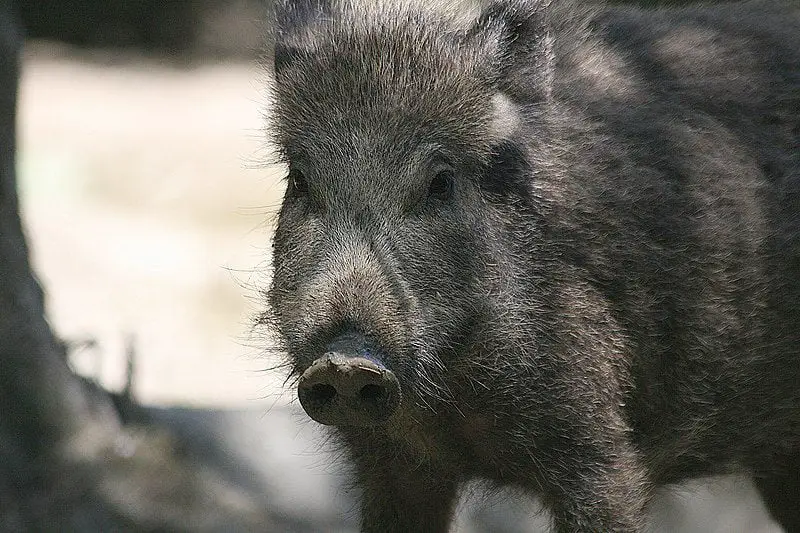
Wild Boar have checked yet another destination off their tour of the north as 14 were spotted this week roaming a rural road in Pickering, Ontario. According to CP24, the boars were first spotted on a rural resident’s lawn and the Ministry was soon called to investigate. Based on descriptions given by the residents, the boars are thought to be Eurasian, the invasive strain that is currently of most concern.
Unfortunatley, at the time of this writing, the pigs have not yet been captured and the Ontario government is urging those in the Pickering area to report any Wild Boar sightings at [email protected] or 1-833-933-2355.
As we reported last month, when the animals first appeared in Elk Island National Park in Alberta, Wild Boar have begun establishing themselves across Canada.

Evident in the map above, the wild boar invasion has exploded in the west over recent years and has a firm hold in Saskatchewan and Alberta. This is primarily due to a project in the 90s that saw the animal imported to Saskatchewan in an attempt to diversify farming operations – animals that soon escaped and began their spread.
Today, Alberta has sightings in over 28 counties and Saskatchewan, according to lead wild boar researcher at the University of Saskatchewan, Ryan Brook, is “… on track to have more wild pigs than people…”
Fortunately for Canadian hunters, this could mean some new opportunities will be coming our way as governments seek ways to stop the spread of this destructive species. And when that day comes, be sure to check out the Eating Wild section of the website for some excellent Wild Boar recipes.
3 – Urban Coyote Encounters on the Rise in Edmonton
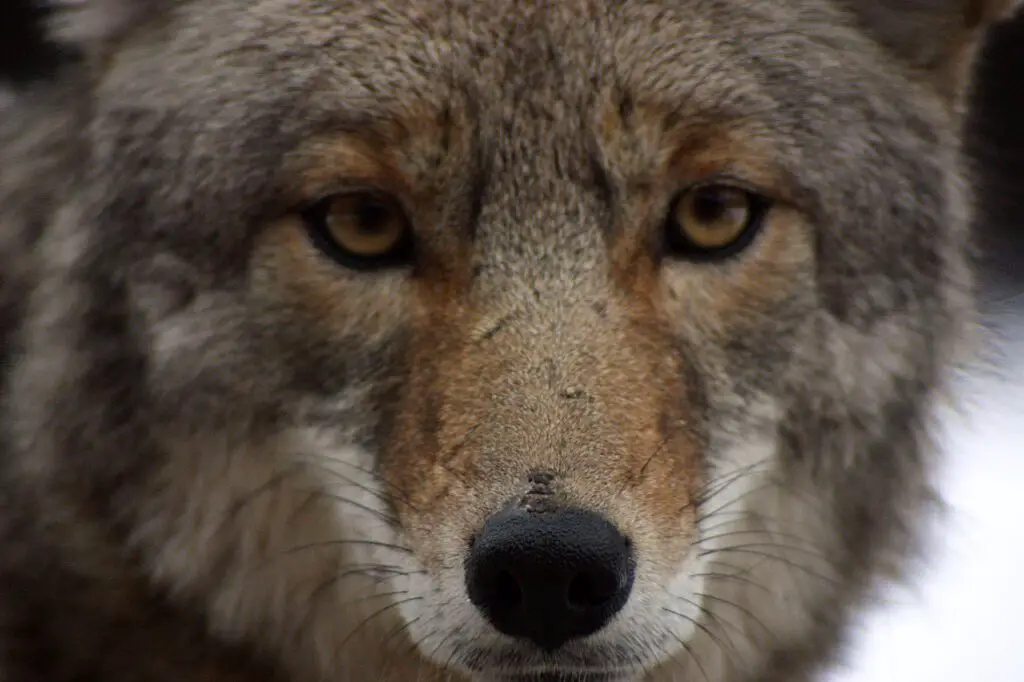
Moving back out west, coyotes were back in the news this week as their prevalence in Edmonton is having some residents take notice.
According to Global News, reports coyote interactions within city limits are on the rise and the animals seem to be growing more aggressive. The reports began back in September when a dog was fatally attacked and have kept their momentum since as multiple people have been approached by seemingly fearless coyotes.
According to a recent conversation that Ang and Pete had with former Minister of Natural Resources, Jerry Ouellette, this is largely due to a lack of negative reinforcement and human feeding. This was on full display in September when Stanley Park authorities in Vancouver were forced to cull a large portion of their now human-dependant coyote population after over 45 attacks were reported in just one year.
As we have stated numerous times in our coverage of these stories, it is extremely important to keep wild animals wild, as treating them as pets does far more harm than good for all parties involved.
4 – Sea Lamprey Celebrate Their 100 Year Great Lakes Anniversary

An anniversary that just about everyone in Ontario would like to forget, the invasive Sea Lamprey has reached 100 years in its terrorizing of the Great Lakes.
As their name would suggest, Sea Lampreys are native to the sea and have only been residing in the freshwater of the Great Lakes for, as of this week, 100 years. Their invasion was a result of the creation of canals that allowed them to enter New York’s Finger Lakes in the late-1800s. Although this, even at the time, was thought to be dangerously close to the Great Lakes, officials assured the public that Niagara Falls would provide the ultimate Sea Lamprey barrier and would make reaching the Great Lakes an impossibility.
This remained true for the remainder of the late 18′ and early 1900s, however, the renovation of the Welland Canal soon gave them a way around the falls and, in November of 1921, the first Lamprey was found, attached to a Whitefish, in Lake Ontario.
Since then, the lamprey has not looked back and has become one of the greatest menaces that swim our waters – from Lake Erie all the way to Lake Superior. Lake Trout were perhaps the greatest sufferers of this invasion with populations plummeting in Lake Ontario and virtually disappearing in Lake Erie.
Thankfully, thanks to extensive culling efforts that included near chemical warfare and nearly $25 million dollars per year, Laprey numbers are thought to be down nearly 90% and the Lake Trout numbers are back on the rise.

5 – Chum Salmon Stocks in Serious Danger After BC Floods
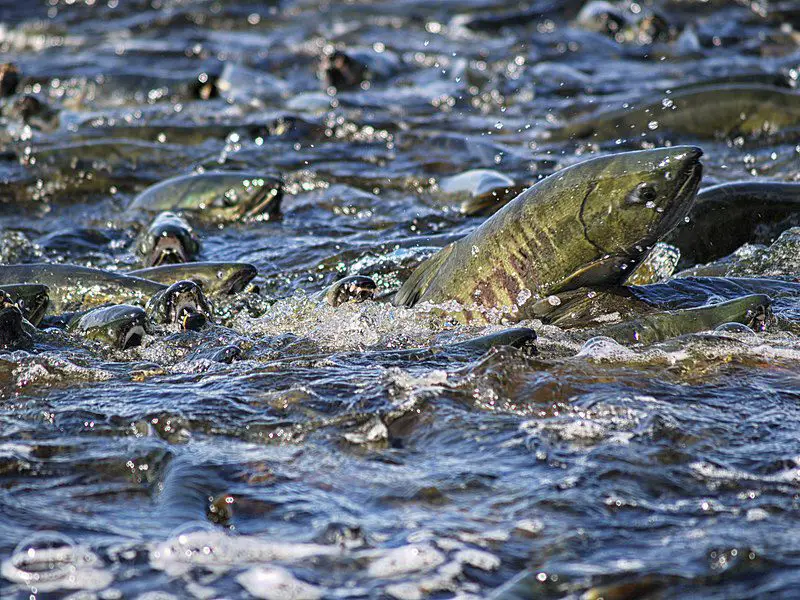
Salmon are perhaps one of the lesser concerns with the flooding BC is experiencing right now but, since we report outdoor news, fish will be the focus of this story.
According to officials Vancouver Island’s Goldstream Hatchery, via CHEK News, Chum Salmon are one of the primary concerns with the exceptionally high water. After a year that has already seen historically low returns for nearly all species of west-coast salmon, the historic flooding events has now pushed sediment and organic material into the hatchery, threatening to impact the survivability of the recently dropped eggs by suffocating them before they hatch.
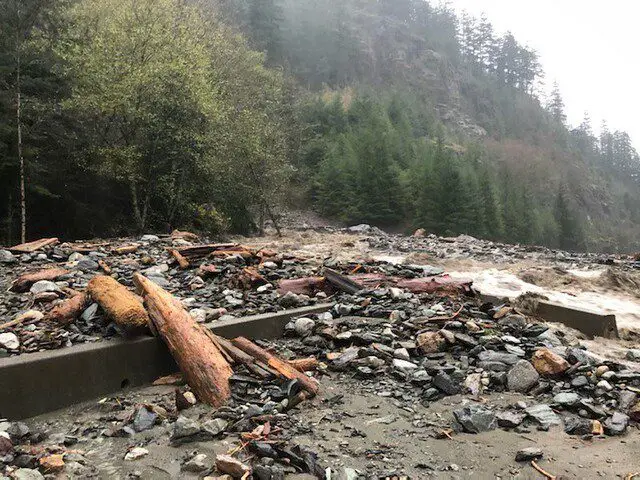
The severity of the impact these floods will have is yet to be known and will not likely be measurable until the water returns to normal levels.
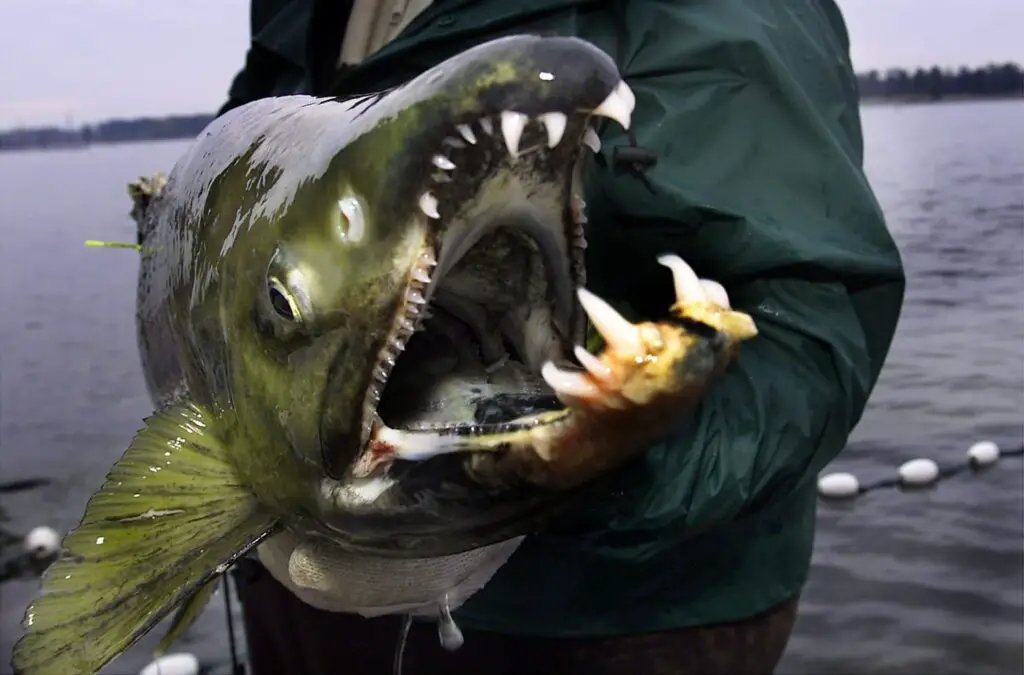
via The Columbian 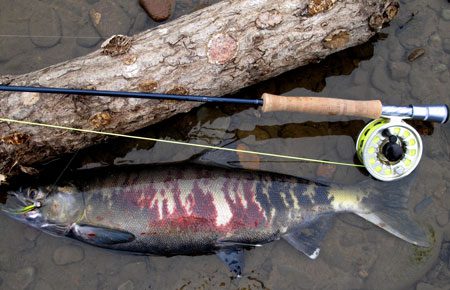
Have a story we missed? Send us an email at [email protected]



